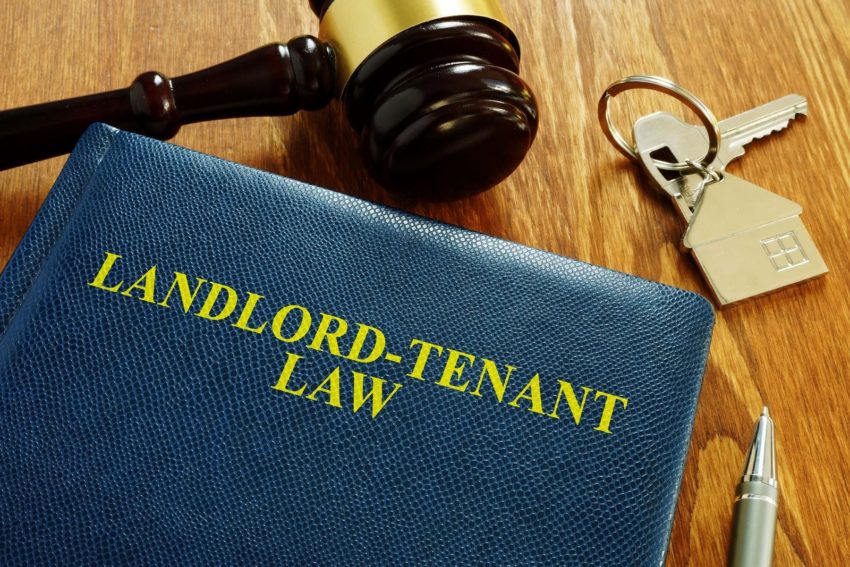Landlord-tenant laws can be confusing and overwhelming. Unless you have some legal background, it can be difficult to understand the ins and outs of the law. That’s why we have put together this guide to landlord-tenant law in the United States. In this guide, we will discuss some of the most important aspects of landlord-tenant law, including eviction procedures, security deposits, and more!
Federal landlord-tenant laws:
The Federal Fair Housing Act is the main federal law that covers discrimination in housing. This law makes it illegal for landlords to discriminate against tenants based on race, color, religion, national origin, sex, familial status, or disability.
The Equal Credit Opportunity Act is another federal law that you should know about landlord-tenant laws. This act prohibits landlords from discriminating against tenants based on their credit history.
The Fair Debt Collection Practices Act is yet another important federal landlord-tenant law. This act protects tenants from harassment by landlords or agents during debt collection.
The Fair Credit Reporting Act is also an important federal law for landlords and tenants to be aware of. This act requires landlords to follow certain procedures when using consumer credit reports for tenancy screening purposes.
State landlord-tenant laws:
In addition to the federal laws that apply to landlords and tenants, there are also several state laws that you need to be aware of. These laws vary from state to state, so it’s important to check with your local housing authority or attorney general’s office to find out what applies in your state.
Some states have fair housing acts that provide additional protections beyond those found in federal law. Other states have laws that regulate how landlords must maintain their rental properties. And still, other states have laws that protect tenants from eviction without just cause.
While the exact laws are different from state to state, they almost follow a similar template:
- Laws about discrimination: These laws make it illegal for landlords to discriminate against tenants based on race, color, religion, national origin, sex, familial status, or disability.
- Laws about eviction: These laws spell out the procedures landlords must follow to evict a tenant from a rental property.
- Laws about security deposits: These laws regulate how landlords must handle security deposits, including when and how they must be returned to the tenant at the end of the tenancy.
- Laws about rent increases: Some states have laws that regulate how much and how often landlords can raise rents on their properties.
- Laws about repairs: Some states have laws that require landlords to make certain repairs to their rental properties within a reasonable amount of time.
- Laws about required disclosures: These laws require landlords to provide tenants with certain information about the property, such as the presence of lead paint or other hazards.
- Laws about tenants’ right to privacy: These laws protect tenants from having their privacy invaded by landlords or agents.
While some of the most common clauses are included in rental law, there are a few special clauses depending on the state. For example: In Florida, landlords must give their tenants a written notice at least three days before entering the property for any reason other than an emergency.
And in Oregon, landlords must provide their tenants with a disclosure statement that explains the tenant’s right to have 24 hours notice before any non-emergency repair work is done on the rental unit.

Understanding the legal liability of a landlord:
In the United States, landlords have a lot of legal liability. The landlord could be held responsible if something goes wrong on the property. For example, if a tenant slips and falls on the property, the landlord could be liable for their injuries.
It’s important to understand your legal liability as a landlord before you rent out your property. You may want to consult an attorney to better understand your rights and responsibilities.
The importance of having a written lease: When renting out your property, it’s important to have a written lease agreement. This document will outline the terms of the rental agreement, including how long the tenant can stay, what they’re responsible for, and how much they’ll be paying. A written lease agreement will protect you and the tenant in case there’s a disagreement. It’s important to have all the details spelled out in writing, so there’s no confusion later.
Problems with the property: If there’s ever a problem, it’s important to take care of it immediately. This could mean fixing a broken window, repairing a leaky faucet, or dealing with any other issue. The sooner you deal with problems, the less likely it is that they’ll cause major damage. If you wait too long to fix things, you could end up being responsible for a lot of expensive repairs. Taking care of problems immediately will also help keep your tenants happy. If they feel you’re taking care of the property, they will likely want to stay there long-term.
In conclusion, it’s important to understand the landlord-tenant laws in your state. These laws can protect you and the tenant, and it’s important to be aware of them before renting your property. Having a written lease agreement is also crucial, as it will spell out the terms of the rental agreement and help to avoid any misunderstandings later on. Finally, if there are any problems with the property, it’s important to take care of them immediately to prevent further damage or expensive repairs.

